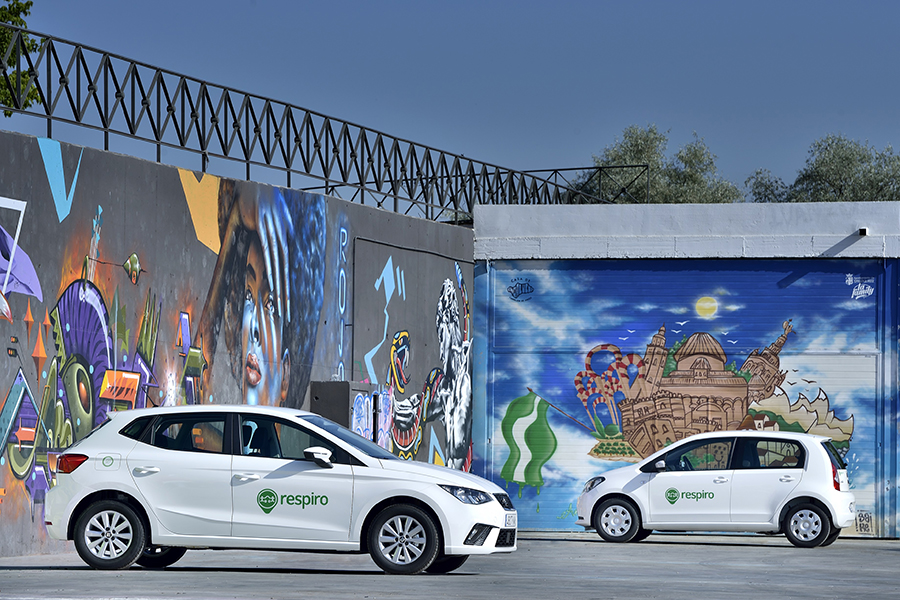
In the race to develop new mobility services based on connectivity and the shared use of vehicles, Barcelona-based car manufacturer SEAT has emerged as an industry pioneer. Arantxa Alonso, the executive director of the company’s XMOBA Ventures division, talks about SEAT’s mobility projects and about life as a woman in what is still a male-dominated industry.
How is urban mobility changing?
At the moment the average ownership of cars is about 1.2 per household. This .2 could be substituted by a car on demand, mobility as a service. Mobility as a service will be a complement to ownership – and it is already happening. The number of cars per household in urban environments is diminishing.
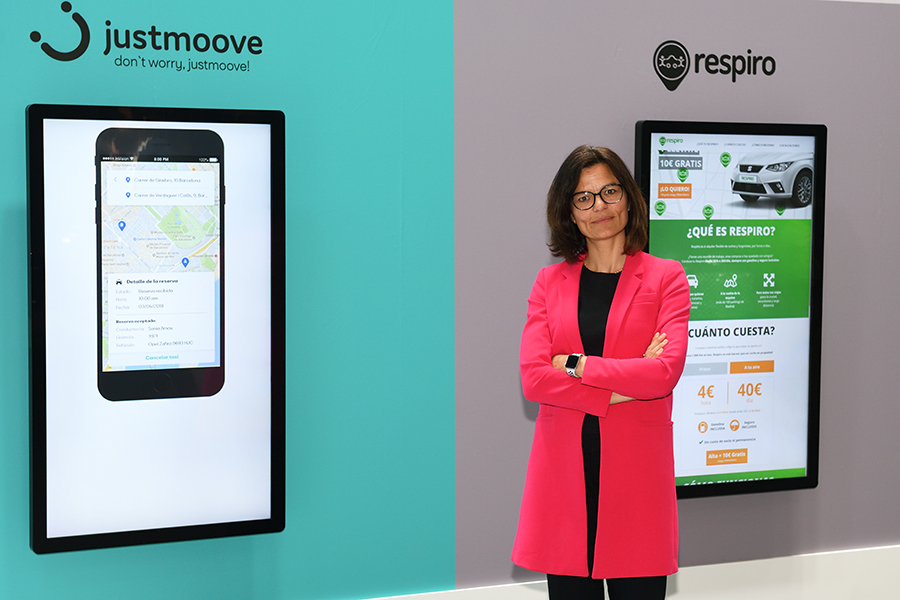
However I do not think ownership will disappear completely. Even urban people living in urban areas move outside their urban environments. In their free time they go beyond their urban limits and maintain their car for those occasions. Or for the “just-in-case”. Many people, especially families, want the safety, security and freedom of movement that can only be guaranteed through ownership. It will take some time until mobility-on-demand services will be robust enough to completely substitute ownership. So I think in urban environments ownership will be complemented by mobility services but there will still be a place for ownership.
How are SEAT and the XMOBA division developing car-sharing services?
In Madrid with our Respiro network we currently offer 230 cars, most of which are hybrids which enjoy entrance to and free movement within Madrid’s restricted area.
We have also just started a pilot collaboration with one of our dealers in Madrid to begin bringing “mobility-on-demand” to our points of sales. So if you currently need “1.2” cars you can buy your “1” through a dealer and then your “.2” through these kind of services, which you use when your car is being repaired, or friends without a car are visiting, etc.
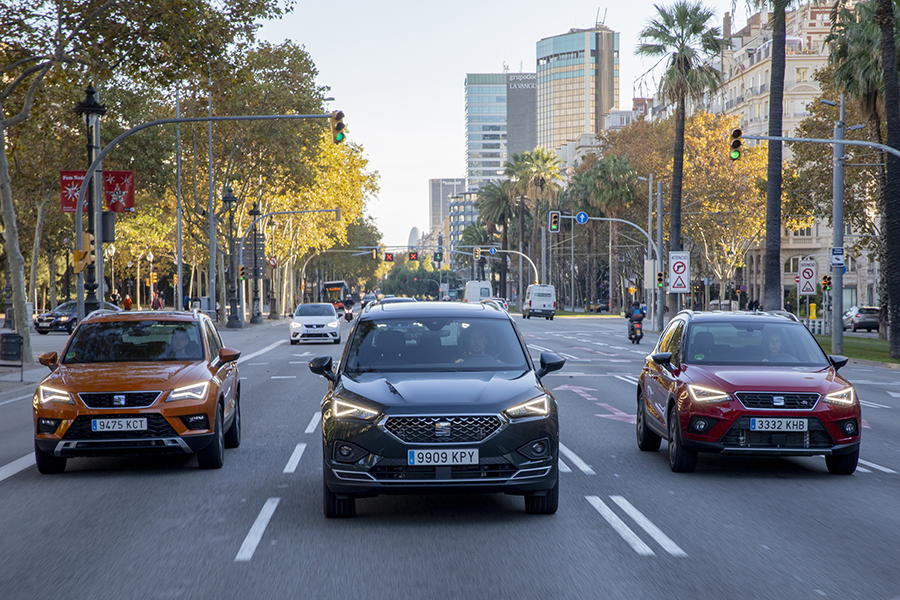
The perfect solution has to satisfy the three stakeholders: the city, the user, and obviously the car sharing operator. It is also important for us to bring the dealer network into this transformation. It is a very strong asset and significant for us to reach the market, to reach the customers we want. For the dealer it is an additional revenue source they have to learn how to explore. Just as we’re learning, they also need to sell that service, promote it to customers, make them understand the use. There is a whole learning experience that we believe has strong potential for us to deploy in the rest of the network. It is learning process for us, for dealers, for consumers changing their habits, for cities learning how to regulate.
How will car-sharing complement other options, such as public transport and scooters?
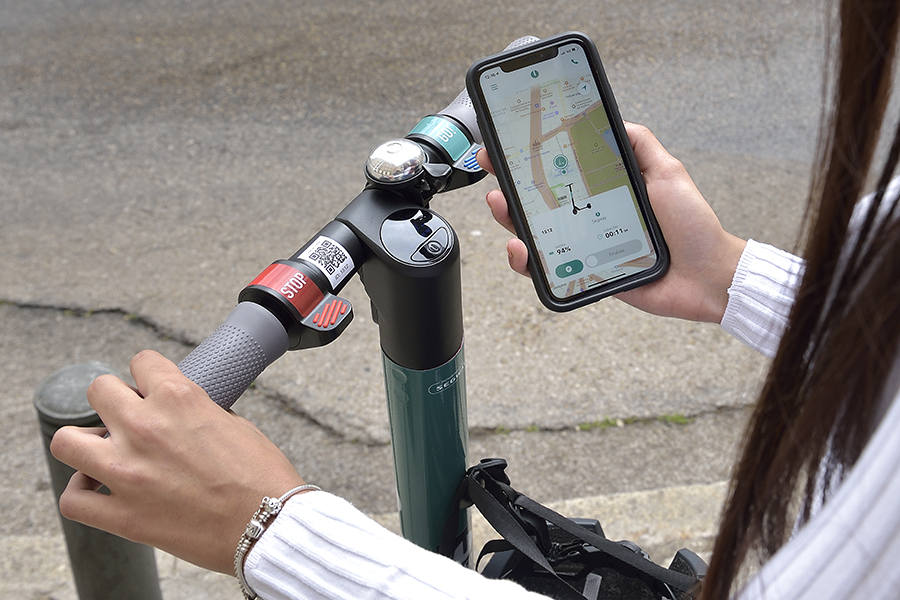
At the end of the day all the transport solutions are addressing the same need: moving from A to B within an urban environment. The user’s decision to use one or the other will be based mostly on convenience. It will be the solution that guarantees the quickest and closest arrival and obviously price will play a role. There will be an overlap but it is very important they collaborate because your solution from A to B will be probably a combination of different means of transport.
Do you think your children will have a driving license?

I think so. The only time you won’t need one is when the cars are autonomous. There’s still some way to go before that happens and even then, you still need a license to drive a scooter. So if you really want to be sure you are free to move it’s better you have the capability. The driving license shows you have the capability.
As a woman in the automotive industry, how easy has it been to progress in your career?
Being in SEAT the experience has always been very equal, with the same opportunities. Sometimes it is women who are embarrassed about their careers rather than the system not accepting them. You simply have to have your own idea of where you want to go and how you want to balance personal and professional life. Don’t be scared to make proposals because, at least in our company, I have always found ways to combine my private and professional life. So from that perspective it has been a smooth trip for me.
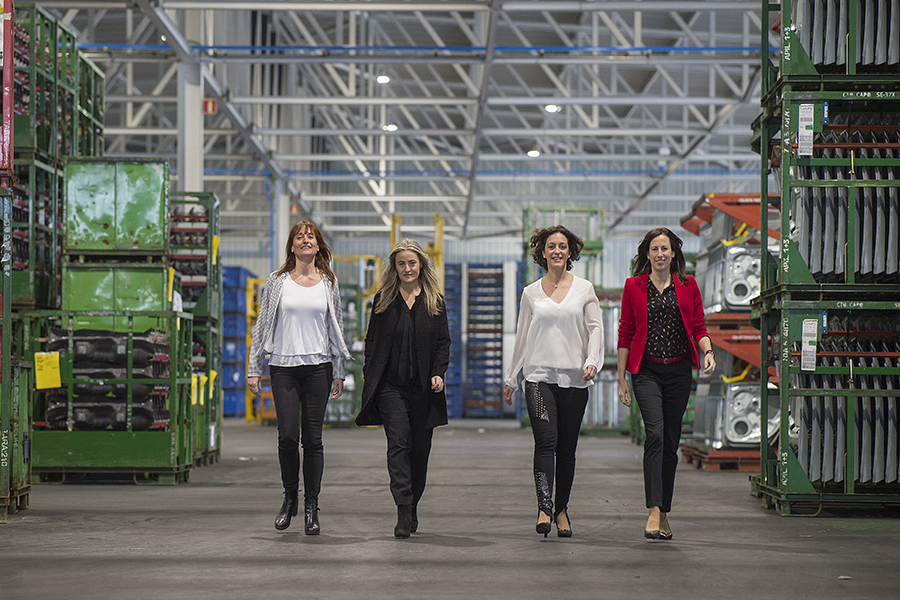
I don’t know why – and it’s not something I mean to do – but I always leave behind a bigger ratio of women than when I came into a team. In our team at the moment women hold two of the seven senior positions. We’re also putting more women into the marketing department.
I think the mixture of genders is very enriching. The way we women see things is not the same. And our visions enrich each other strongly. I think women are more able to empathize and put ourselves in other people’s shoes. We can think about what other people want and need more easily than men.
What would you say to girls who might be considering a career in the auto industry? If you want to have an opportunity to influence things, this is the sector to be in. If you want to be creative, this is the place to be.
“I think in urban environments ownership will be complemented by mobility services but there will still be a place for ownership.”
Arantxa Alonso, Executive Director XMOBA, SEAT Ventures Division
Something that helped me as a woman was to find role models. In my case it was another woman from SEAT working in production. She was more or less my age, also had kids and was able to combine a very challenging position with her private life by implementing some rules and dictating her own time management.

Women have to stop being afraid to fight for what they want. We put barriers up for ourselves but we have so much to bring to the sector, to the future of mobility, that we should step forward instead of back as we so often do. Don’t put up barriers for yourself. Don’t think you cannot do it![]()









